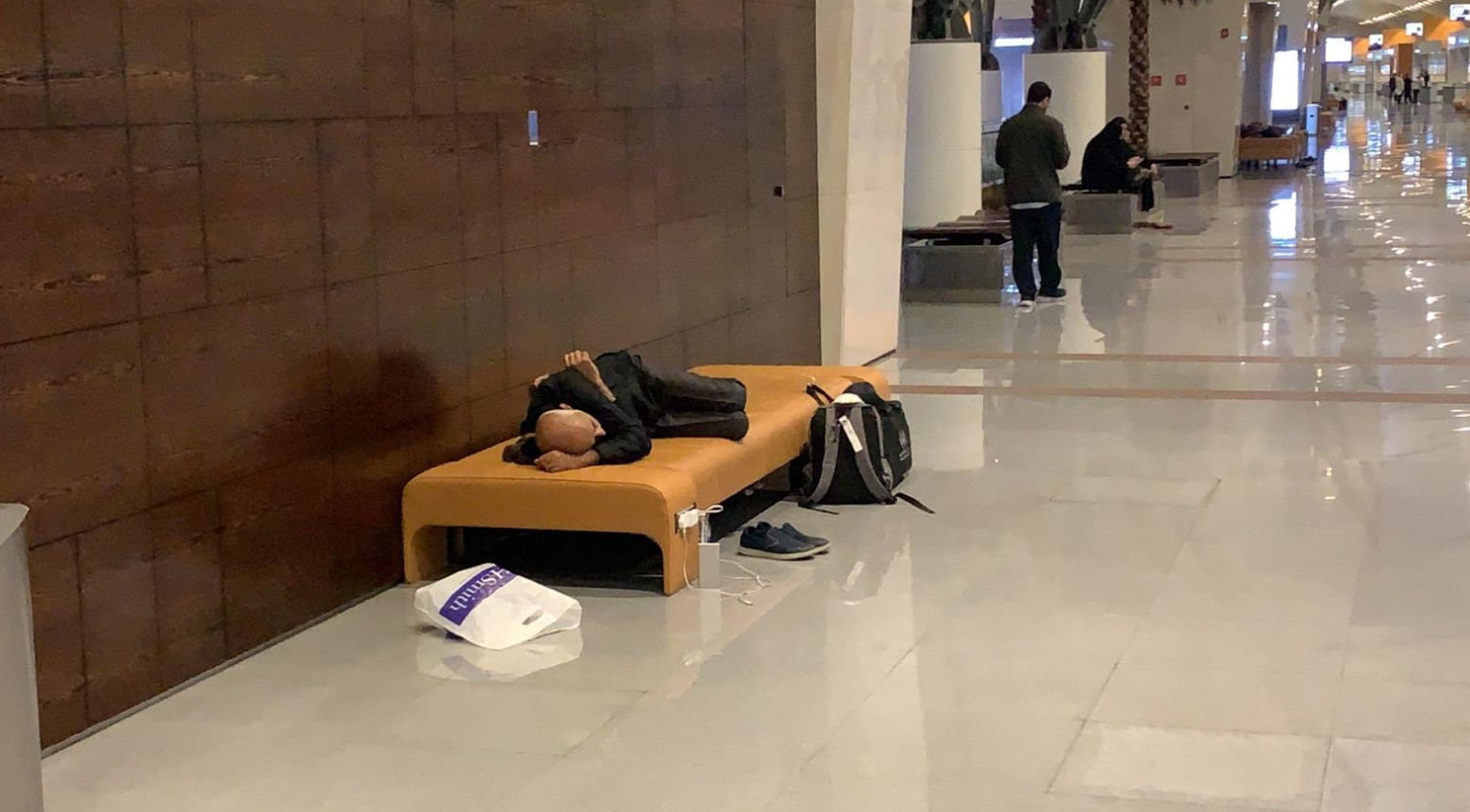30 March 2020 – At least six of the more than 1500 Bahrainis thought to be trapped in Iran have died since the beginning of March, as Bahrain’s government faces rising criticism for repeated failed attempts to bring home citizens stranded by disruptions to air travel caused by Coronavirus. Bahrain has no diplomatic relationship with Iran and airlines do not usually fly directly between the two countries.
The Iranian government has struggled for several weeks to contain one of the world’s most severe outbreaks of Coronavirus, which has caused over 1335 deaths amid 17,361 confirmed cases. Three weeks ago, Bahrain’s government accused Iran of “biological aggression” for allegedly concealing the extent of the outbreak and failing to stamp Bahraini travellers’ passports, after Bahrain’s parliament, which has no legislative power or opposition representation, controversially voted not to return the stranded Bahrainis until they were cleared of the virus.
However, Bahrain has faced rising domestic criticism for its failure to arrange the safe return of Bahraini citizens stranded in Iran, reported to be 1630 individuals according to a Bahrain newspaper. According to the World Health Organisation (WHO), there are currently 499 confirmed cases of the virus in Bahrain, and four deaths.
On 10 March, Bahrain’s Ministry of Health announced the arrival of the first flight from Iran carrying 165 Bahrainis, of whom at least 77 were infected with Coronavirus. However, since then the limited flights scheduled for Bahrain have repeatedly been cancelled, with the Ministry of Health providing either no justification or blaming airlines and companies for their cancellation.
More recently, on Monday 23 and Tuesday 24 of March, flights supposed to repatriate Bahraini citizens who have been trapped in Iran for over a month have been cancelled. On Wednesday 25, the Health Ministry arranged for the second group of Bahrainis to be evacuated from Iran. They safely landed in Manama, but the flight only accounted for 65 passengers. On Friday 27 March, 76 stranded Bahrainis who attempted to travel home independently via Oman were prevented from boarding a flight back to Manama. On the same day, 31 more stranded Bahrainis were prevented from boarding a plane from Doha back to Bahrain. The Bahraini government refused Qatar’s offer to cover the costs of chartering a flight home for their stranded citizens, accusing Qatar of “meddling” with their repatriation efforts.
Human rights activists have further criticised the government for their irresponsibility after healthy and infected individuals were reportedly allowed onto the same flight. While a minority has managed to privately arrange their return, the vast majority are stranded in a country where hotels are in lockdown to combat the spread of the virus; foreigners are left with nowhere to go.
Distraught Bahrainis have also reported that their hotels in Iran have arbitrarily evicted guests as they begin to close. The Arabic hashtag #أعيدوا_العالقين_البحرينيين, or “Bring back the stranded Bahrainis” has been seen trending on Twitter for several days.
For detailed timeline Click here
Sayed Ahmed Alwadaei, Director of Advocacy at BIRD, commented: “It is tragic to see the death toll climb to five among the Bahrainis trapped in Iran, with little effort by the Bahraini authorities to bring their citizens home.
While the government has cynically exploited the pandemic to stoke regional tensions, over 1000 Bahrainis in Iran have been effectively abandoned, putting their lives at considerable risk. Bahrain must do whatever it takes to secure their safe return.”
Husain Abdulla, Executive Director at Americans for Democracy & Human Rights in Bahrain (ADHRB), commented: “As the worldwide Covid-19 crisis worsens, it is increasingly distressing that there are still more than 1,600 Bahraini citizens trapped in Iran; a country where six Bahrainis have already died while being unable to return home.
That Bahrain refused assistance from Qatar shows they are prioritising politics above the need to repatriate their own citizens. Given the exceptional circumstances, Bahrain must rise above political differences and work with all those willing to secure the safety and security of their citizens.”





